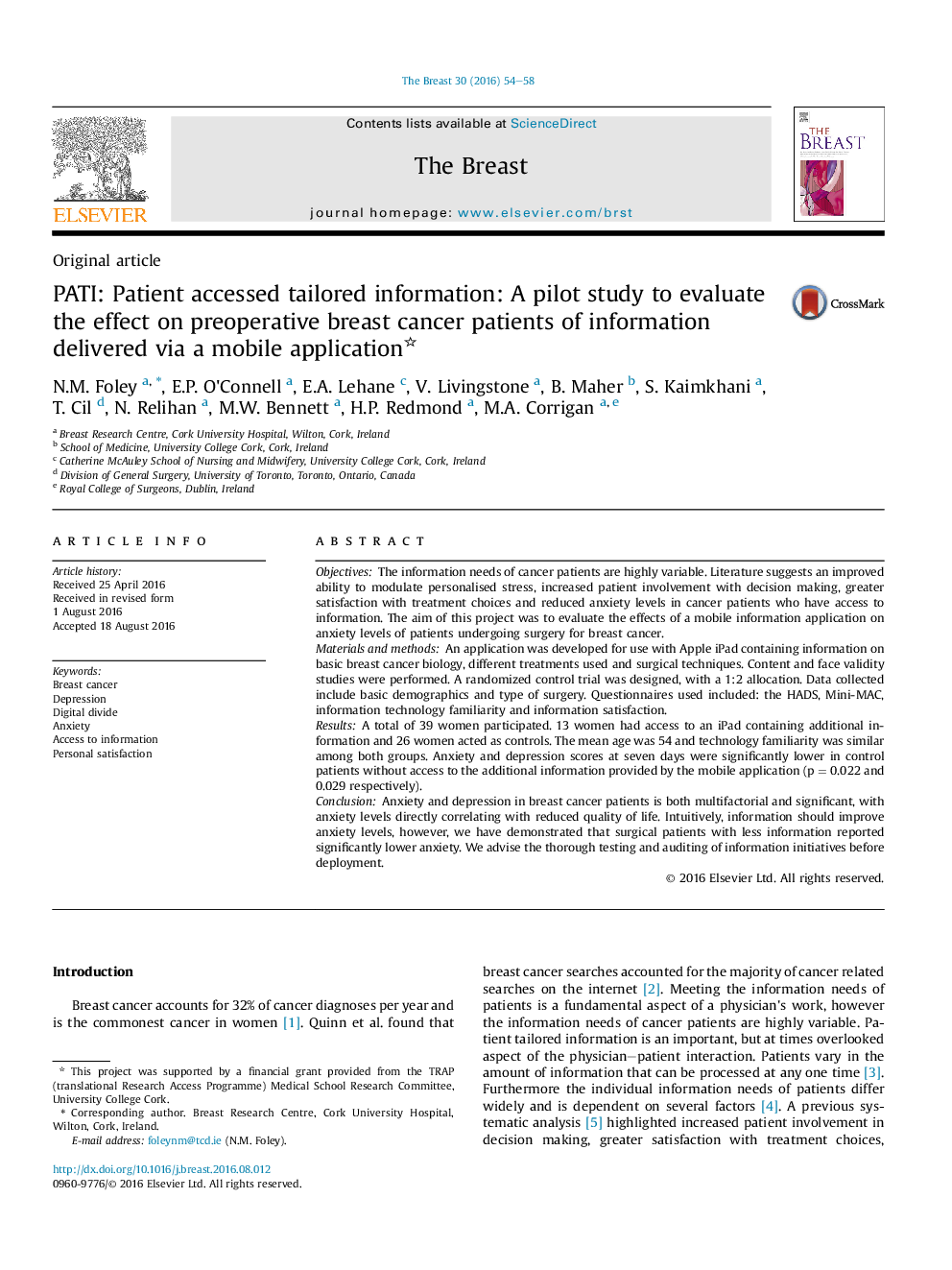| Article ID | Journal | Published Year | Pages | File Type |
|---|---|---|---|---|
| 3908192 | The Breast | 2016 | 5 Pages |
•Empowerment through knowledge is a common theme among women with breast cancer.•Anxiety levels are highly variable among individual patients and information alone is not necessarily a solution.•This study demonstrates higher levels of anxiety in women who have access to an iPad containing tailored information.•This study also demonstrates a shift from mal-adaptive to adaptive coping styles.•Information interventions need to be carefully assessed prior to widespread utilisation.
ObjectivesThe information needs of cancer patients are highly variable. Literature suggests an improved ability to modulate personalised stress, increased patient involvement with decision making, greater satisfaction with treatment choices and reduced anxiety levels in cancer patients who have access to information. The aim of this project was to evaluate the effects of a mobile information application on anxiety levels of patients undergoing surgery for breast cancer.Materials and methodsAn application was developed for use with Apple iPad containing information on basic breast cancer biology, different treatments used and surgical techniques. Content and face validity studies were performed. A randomized control trial was designed, with a 1:2 allocation. Data collected include basic demographics and type of surgery. Questionnaires used included: the HADS, Mini-MAC, information technology familiarity and information satisfaction.ResultsA total of 39 women participated. 13 women had access to an iPad containing additional information and 26 women acted as controls. The mean age was 54 and technology familiarity was similar among both groups. Anxiety and depression scores at seven days were significantly lower in control patients without access to the additional information provided by the mobile application (p = 0.022 and 0.029 respectively).ConclusionAnxiety and depression in breast cancer patients is both multifactorial and significant, with anxiety levels directly correlating with reduced quality of life. Intuitively, information should improve anxiety levels, however, we have demonstrated that surgical patients with less information reported significantly lower anxiety. We advise the thorough testing and auditing of information initiatives before deployment.
